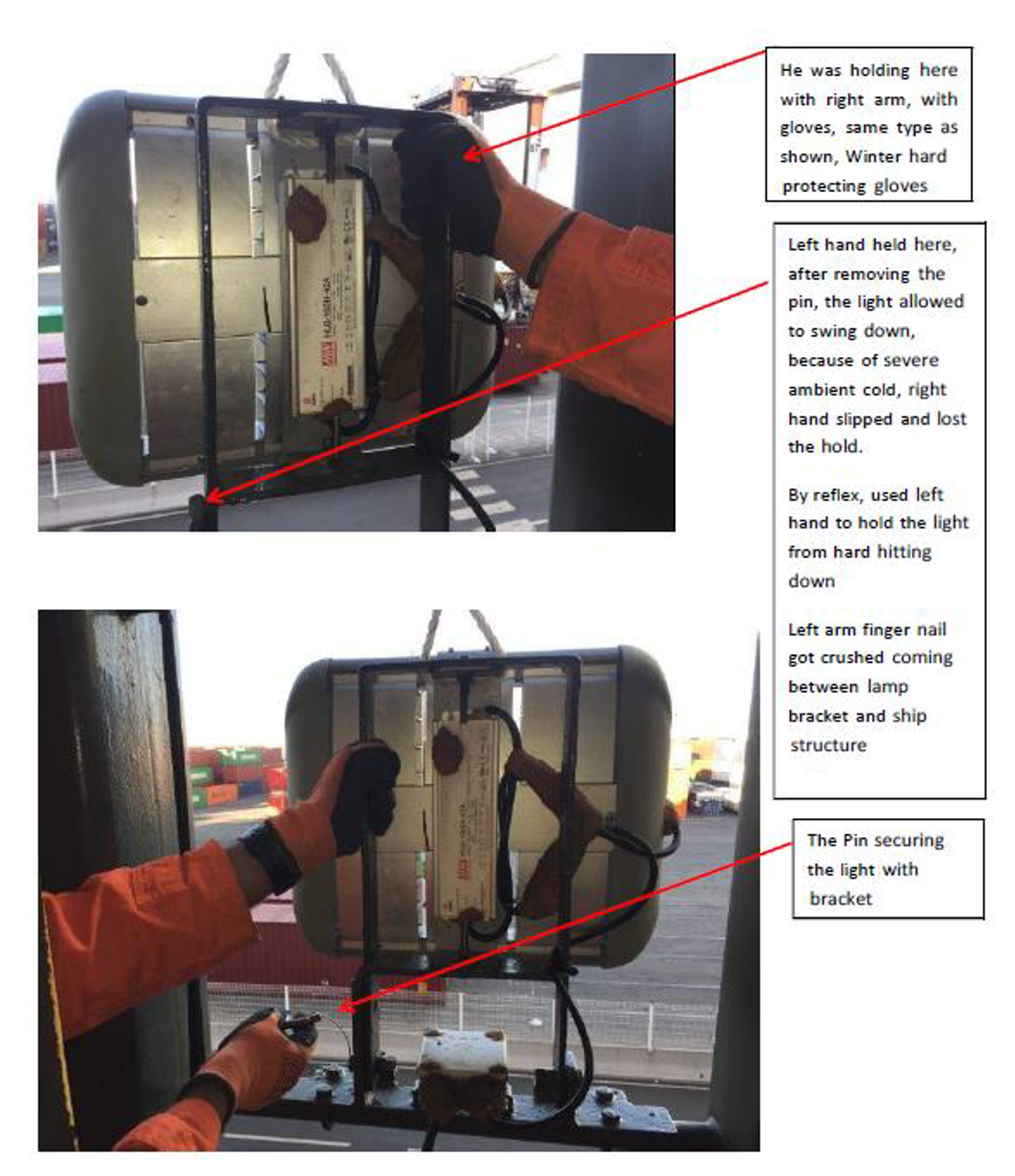LTI: Finger injury during pilot ladder preparation
- Safety Flash
- Published on 27 June 2017
- Generated on 12 July 2025
- IMCA SF 16/17
- 2 minute read
Jump to:
An Ordinary Seaman was injured while rigging the pilot ladder during arrival in port.
What happened
In preparation before rigging the ladder, a floodlight was being lowered by the crewman. He inadvertently dropped the light bracket while removing the locking pin, and it landed on his other hand, causing injury to the little finger.
What went wrong? What were the causes?
The immediate cause was found to be that the injured person was not in the right position. He misjudged the situation and used an improper technique to adjust the floodlight. He tried to catch the bracket arm from falling, thinking it would damage the lamp;
The following causal factors were identified:
- no-one foresaw the need for precautions in adjusting the flood light
- the crewman had limited knowledge the potential risk involved;
The root causes were found to be:
- risk was considered tolerable – this was a routine recurring task
- safety systems were inadequate – there was no properly designed handle to hold the light bracket in place while removing the securing pin.

What were the actions?
- Review of specific ship and task risk assessments to include potential risks involved in this operation.
- More effective toolbox talks to be conducted for the crew involved.
- More care to be taken when conducting routine work, especially when less experienced crew are involved.
Related Safety Flashes
-
IMCA SF 08/16
13 April 2016
-
IMCA SF 28/16
18 October 2016
-
IMCA SF 04/16
5 February 2016
IMCA Safety Flashes summarise key safety matters and incidents, allowing lessons to be more easily learnt for the benefit of the entire offshore industry.
The effectiveness of the IMCA Safety Flash system depends on the industry sharing information and so avoiding repeat incidents. Incidents are classified according to IOGP's Life Saving Rules.
All information is anonymised or sanitised, as appropriate, and warnings for graphic content included where possible.
IMCA makes every effort to ensure both the accuracy and reliability of the information shared, but is not be liable for any guidance and/or recommendation and/or statement herein contained.
The information contained in this document does not fulfil or replace any individual's or Member's legal, regulatory or other duties or obligations in respect of their operations. Individuals and Members remain solely responsible for the safe, lawful and proper conduct of their operations.
Share your safety incidents with IMCA online. Sign-up to receive Safety Flashes straight to your email.